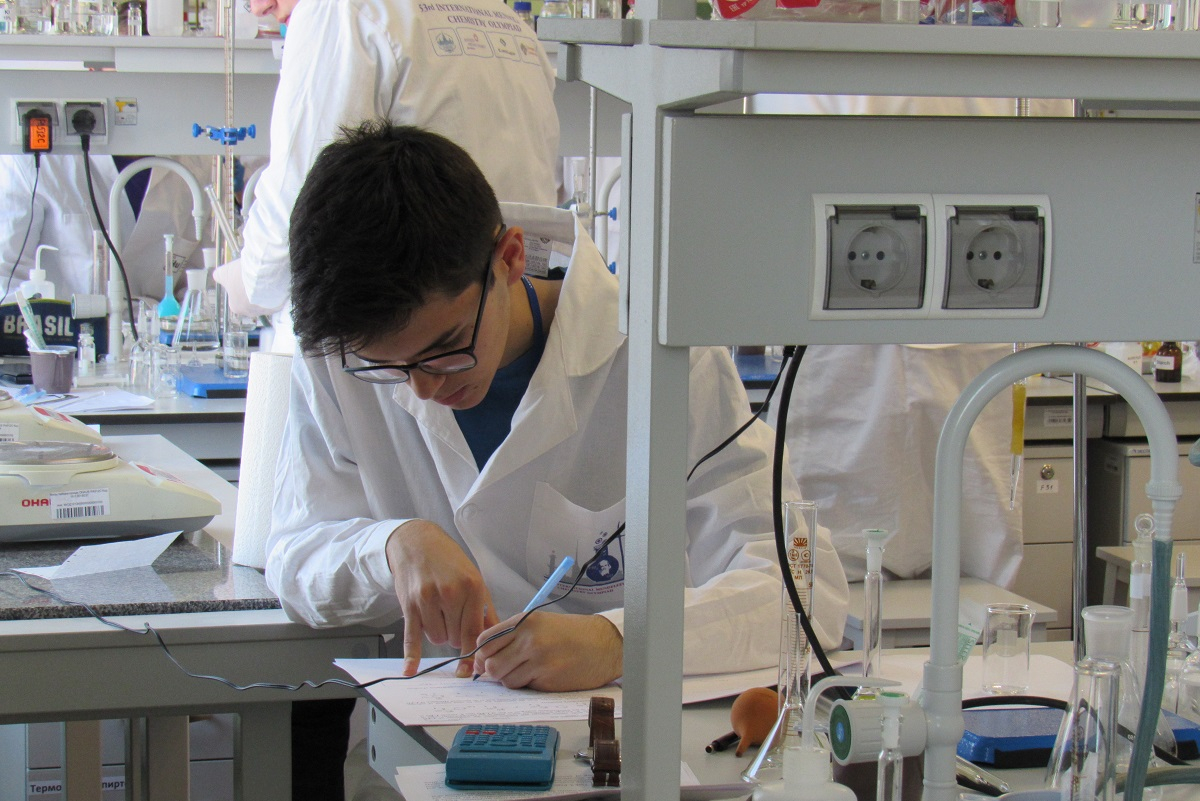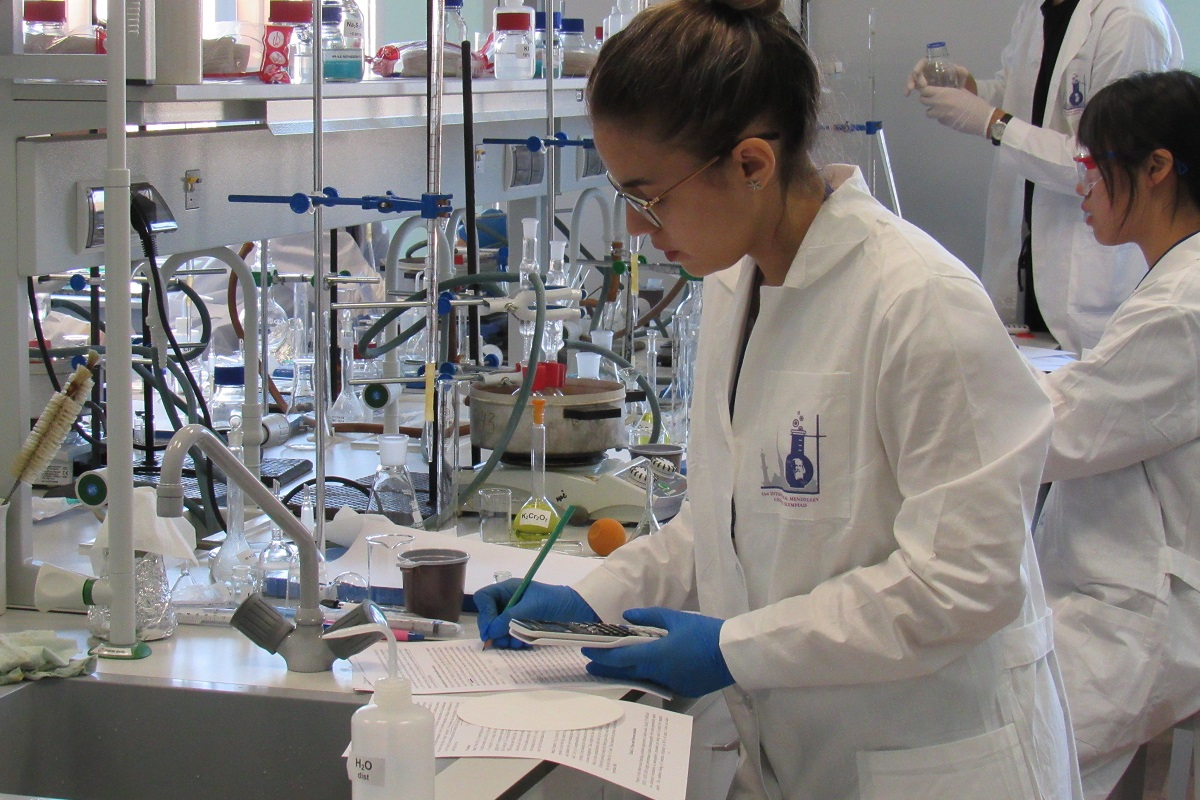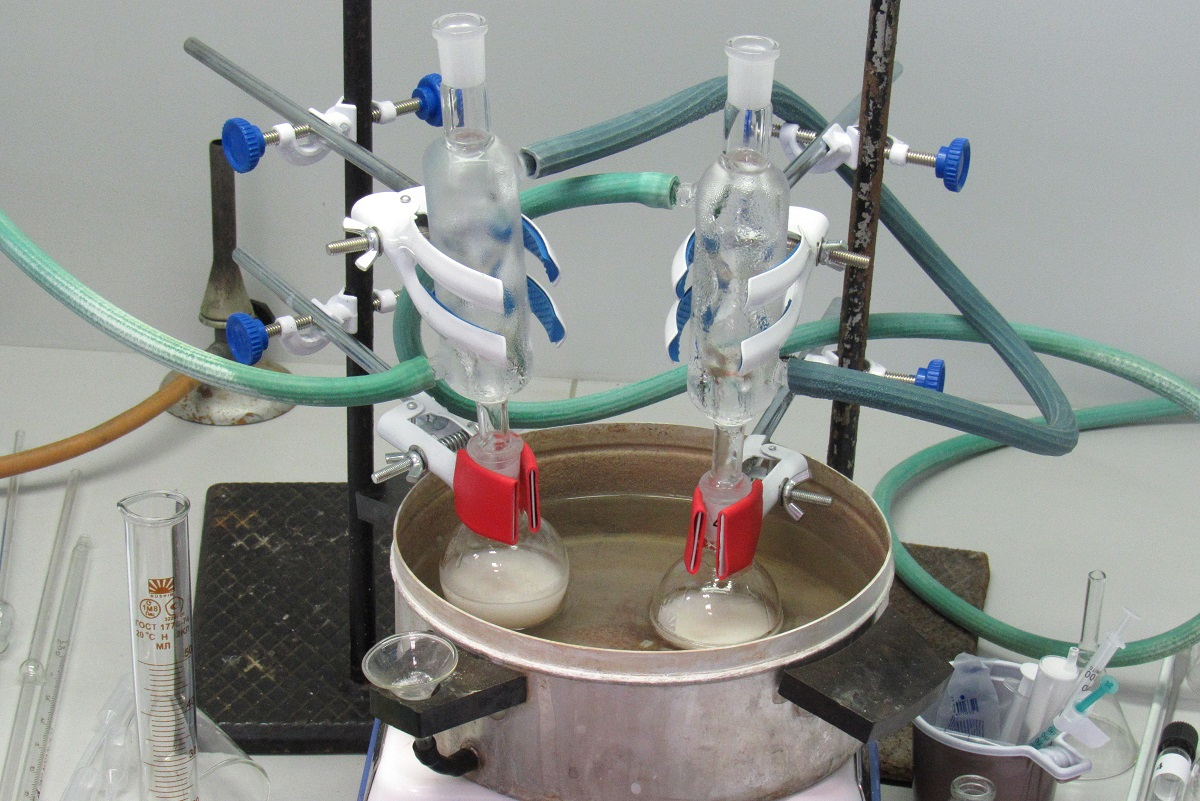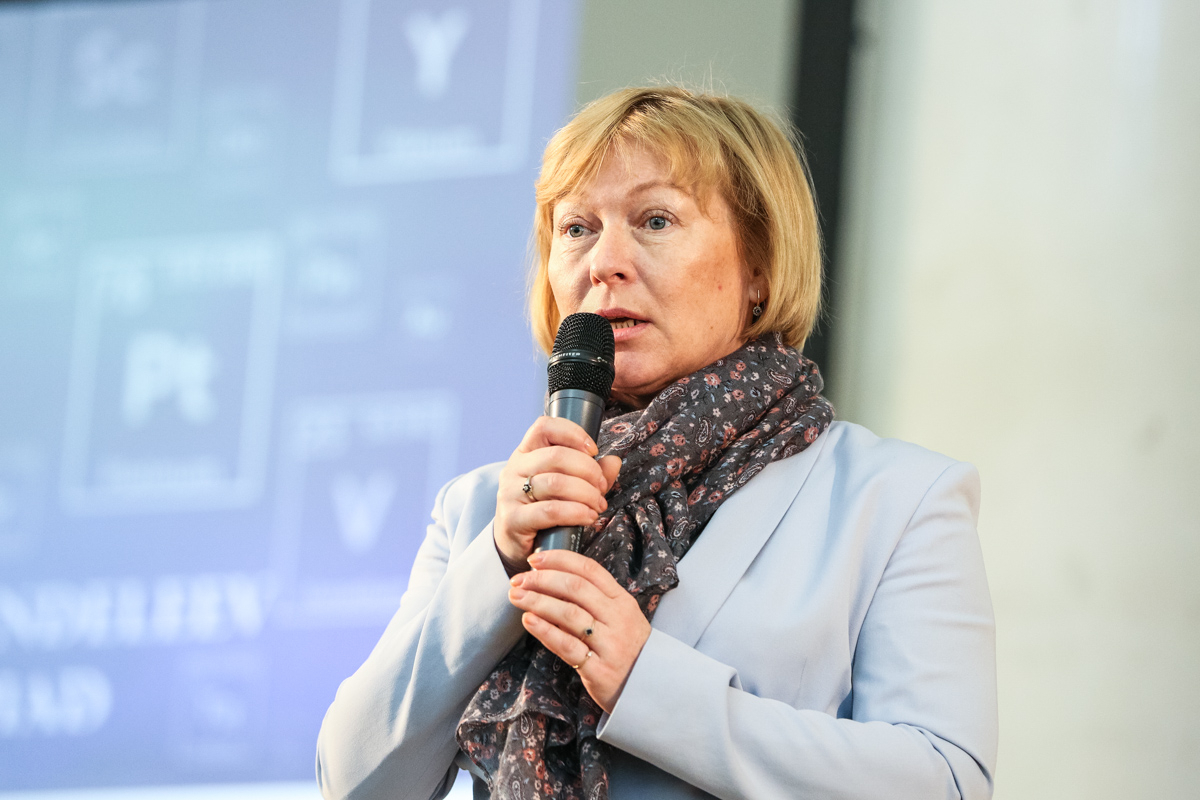School students are to synthesise organic compounds for the first time at the International Mendeleev Chemistry Olympiad held at St Petersburg University
The third, experimental round of the 53rd International Mendeleev Chemistry Olympiad for high school students (IMO-53) started at St Petersburg University. Irina Balova, Director of the Institute of Chemistry at St Petersburg University, told the reporters that this year, unlike the previous ones, the students were not asked to identify an unknown substance, but to synthesise an organic compound.
‘This is the first time that in the experimental round there has been a task to synthesise an organic compound. In all previous years, the participants had to perform a chemical analysis. A much higher level of complexity is a distinctive feature of the 53rd International Mendeleev Chemistry Olympiad. St Petersburg University has provided everything that is required for conducting the experimental round,’ said Irina Balova. She pointed out that 160 workplaces for the Olympiad participants had been equipped in the laboratories of the Institute of Chemistry at the University. The participants’ lab work was efficiently organised in parallel with the daily academic activities. In addition, the University provided research facilities for the Jury to analyse the participants’ results.’
‘Today, the Magnetic Resonance Research Centre of St Petersburg University Research Park is going to work throughout the night. Spectra will be taken of the compounds that the young scientists have synthesised, in order to assess how well they have performed their tasks,’ revealed Irina Balova.
IMO-53 opened at St Petersburg University on April 21. There were more than 150 young scientists from 29 countries, including Russia, Belarus, Kazakhstan, Israel, Ukraine and the Baltic states. They gathered in the city on the Neva River to compete in the contest. This year, seven countries have participated in the Mendeleev Olympiad for the first time: Austria, Iraq, Iran, China, Slovakia, Syria, and the Czech Republic. The two theoretical rounds are already finished. The third round is experimental, and based on its results the Jury will name the winners. The best will be determined by the total points earned in all three rounds of the competition.
The International Mendeleev Chemistry Olympiad for high school students (IMO) is the successor to the All-Union Olympiad, which was held annually in the USSR. After the collapse of the Soviet Union, the tradition was resumed in 1997 by the Mendeleev Olympiad. Since 2004, in addition to the CIS and the Baltic states, other countries have participated as well.
The participants’ lab work will be evaluated by the Organising Committee and Methodological Commission. They consist of professors and lecturers of leading universities, as well as high school chemistry teachers from the participating countries. The Methodological Commission also includes undergraduate and postgraduate students – the IMO winners of yesteryear. This helps to preserve traditions and ensure the continuity of the Olympiad principles for years to come. The Methodological Commission and the international Jury are chaired by Professor Valentin Nenaidenko, Head of the Department of Organic Chemistry, Professor of the Faculty of Chemistry at Lomonosov Moscow State University.
Note that this is the first year that the Mendeleev Olympiad has been held in St Petersburg. This was due to the fact that the United Nations proclaimed 2019 as the International Year of the Periodic Table of Chemical Elements to mark the 150th anniversary of the discovery of the Periodic Law. The distinguished chemist Dmitri Mendeleev devised the periodic table when he was a professor at St Petersburg University. The Olympiad is organised by the Faculty of Chemistry at Lomonosov Moscow State University, St Petersburg University, Andrey Melnichenko Foundation, and EuroChem.





